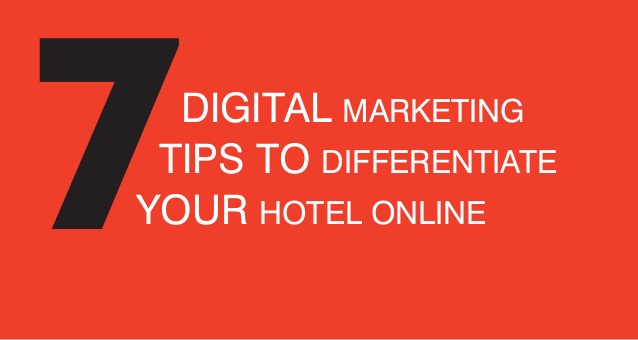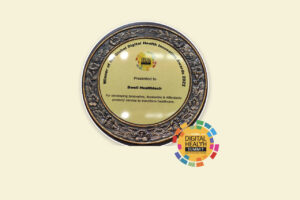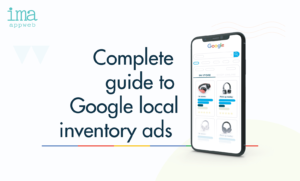2021 is looking like yet another exciting year for the travel industry. Expedia and Priceline have been pushing to place themselves as pivotal for all travel-related decisions. So, the question is, what can hotels do to leverage this shifting market?
Some in the industry are sending strong signals of change. A significant number of the top international hotel chains created Roomkey in 2021, a new distribution portal, to compete with the OTAs. Several Scandinavian operators have recently suspended their contracts with Expedia, reacting to issues regarding their ability to offer the best prices themselves. The Air Transport Association announced that they would start offering customizable tickets, but only on their own websites.
All of these moves seem to be a departure from standardized mass-distribution product where price is king, to distribution control and product customization, where value and net margin contribution are the key factors.
Get in Touch with the Best Hotel Marketing Experts to escalate your Hotel Business.
Changing strategies
First Hotels, Nordic Choice, Scandic Hotels and Thon Hotels suspended their contracts with Expedia in order to be able to offer lower-cost products on their own websites.
As we see it, this is a move towards maximizing direct bookings, while pressuring the OTAs (Online Travel Agencies) for better distribution terms. And apparently they were able to suspend their contract with Expedia without any major damage, because they had already established multiple channels for their reservations.
The Air Transport Association is making strides towards greater differentiation. The ATA recently announced that it would be experimenting with customizable tickets and fees, but only for passengers who book directly on the airlines’ websites. The ATA announcement is very interesting as it highlights the importance for hotels to differentiate themselves beyond price, and focus on ancillary services.
By allowing customers to select through the aforementioned customizations, even if they are not offering the lowest price in the industry, they are differentiating themselves from everyone else in the customer’s eyes.
Roomkey, on the other hand, is the creation of a new distribution push under direct hotel members’ control. The goal seems to be to assure a greater control of their distribution channels and associated margins.
But, if the goal is not to replace the OTAs, why not have the focus on their individual websites and reservation engines? Why take on the collective creation of roomkey.com? It could very well be that the hotels involved chose to create this new collective entity to push products and customization options that they will not offer OTAs.
It seems that all the entities above have recognized that placing themselves in the market without any distinct traits or services has helped commoditize them, and pushing advantage to huge inventory consolidators like the OTAs. Recognizing this commoditization, they took the necessary steps towards differentiating their products. In the long run, being stuck with only price as the decision factor is prejudicial for all parties involved, as it will drive dwindling margins.
Being able to differentiate your product is essential. If hotels are forced to compete solely on price, it will be a race for the bottom of the barrel.
What can hoteliers take away?
Observing the strategies above and the events that precipitated their implementation can give hoteliers a great deal to take away. Even just a glance over all of the events is enough to see how hotels need to diversify their digital marketing strategy and truly become multi-channel.
Furthermore, hoteliers’ digital marketing strategy needs to include differentiation of their product. But the examples above had a great deal of negotiating power, which eased their multi-channel marketing and product differentiation.
It’s important to work out how independent hotels and boutique brands can achieve both of these goals, without incurring prohibitive costs. Some effective steps that hoteliers can take to differentiate their hotel, all the while improving their multi-channel digital marketing strategy are:
- Invest in specialized channels: Make sure that your hotel is present in the distribution channels most relevant to your market segment. For instance, if you have a boutique hotel, try to get listed on tablethotels.com.
- Showcase your hotel online: Make sure you have an up-to-date website that reflects your hotel’s unique features and characteristics, so as to give customers a perception of what your hotel is all about. This is something OTAs won’t be able to do as they are set out for comparison-shopping.
- Customize the experience: Provide additional options for customers booking. Create partnerships with local attractions, tours, restaurants,… and offer them as add-ons after the customer has booked with you.
- Differentiate on booking packages: Innovate with room types as product offers. Leverage your own booking engine to offer promotions and special offers that you should not offer on the OTAs (e. g. an iPod room where you have a fully charged iPod with music in the room or a package with a day at a nearby spa).
- Reward loyalty: Reward returning guests that book directly through your website. This can be easily achieved by offering e.g. 10% discount code for any returning customer, still much less than the commission you pay to OTAs.
- Market directly to customers: Gather your guests’ information and ask them to opt-in for promotions and special offers so that you can reach out directly. .
- Leverage social media: Have a presence in the most popular social platforms. It isn’t just a way to increase your online presence; it is also the addition of new communication channels. With social media you have a platform where you can communicate with customers on a more informal level and take advantage of your small size in order to transmit a friendlier feel to your guests.
Conclusion
As hoteliers take steps towards an improved digital marketing strategy, some common traits stand out: control, customization, differentiation. This shouldn’t be something that only big hotel chains can pursue, as with the right tools and strategy even small independent hotels can make sure that customers differentiate their hotel from everyone else’s.
Note: This article also appeared in GuestCentric‘s
About the writer:
The writer of this blog is saurabh shankar singh follow him on twitter @mascotorion for more insights on creating a company which creates profit and generates more revenue.
Learn more about him at Linkedin











[…] what are famous hotels and big brands been doing to boost their sales and increase revenue and what are the right steps that a hotelier can do to boost their sales. […]